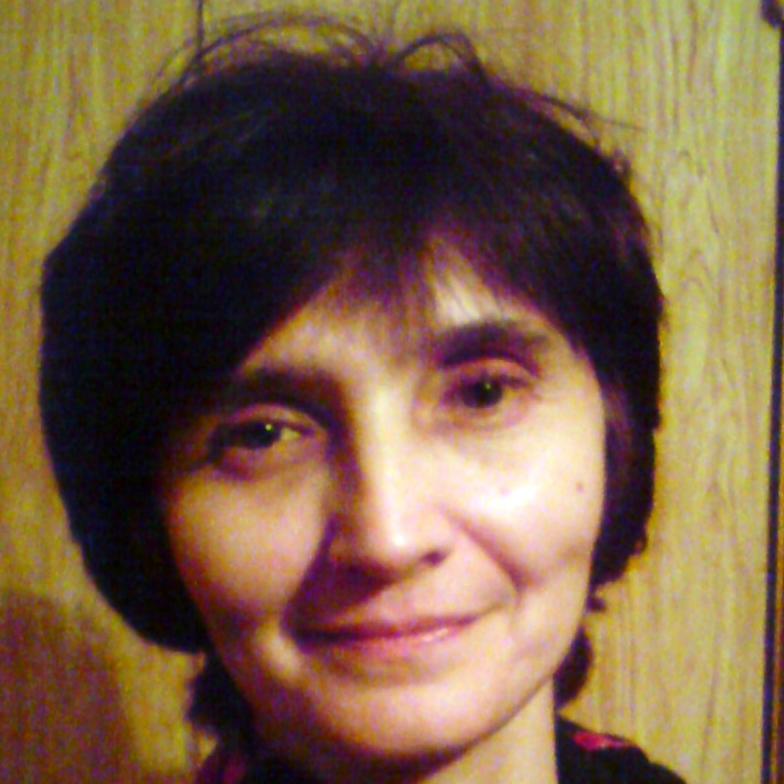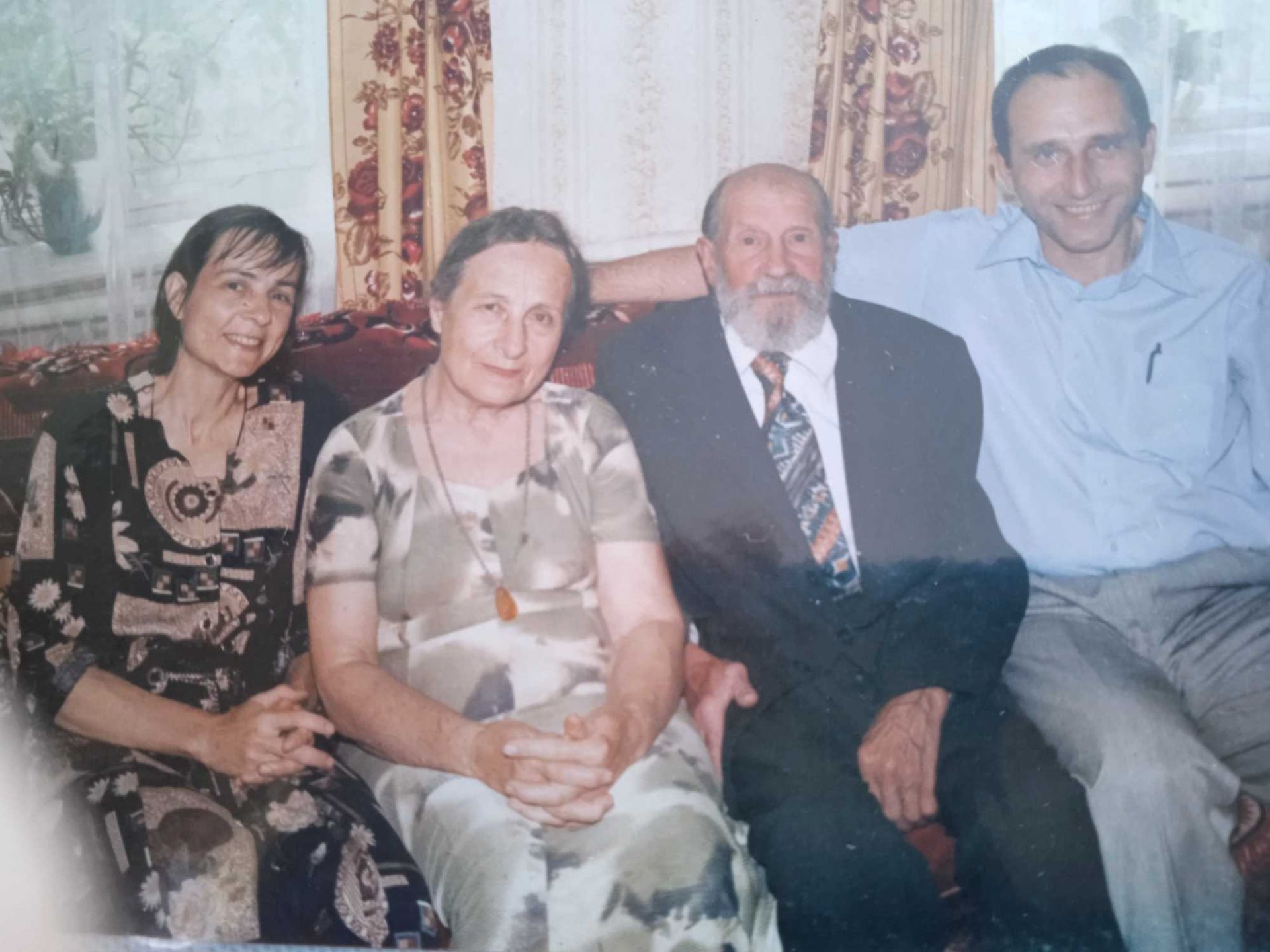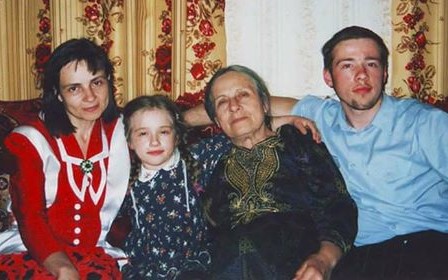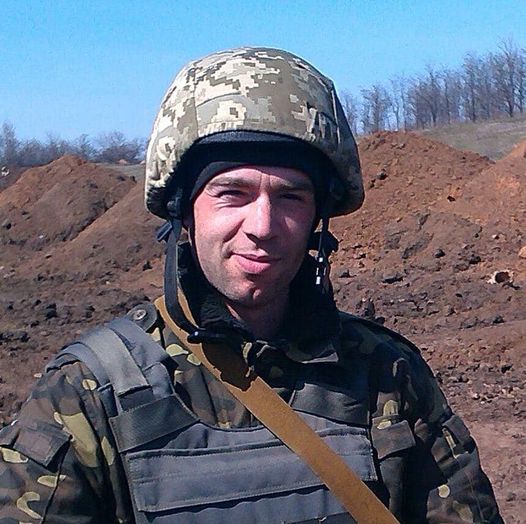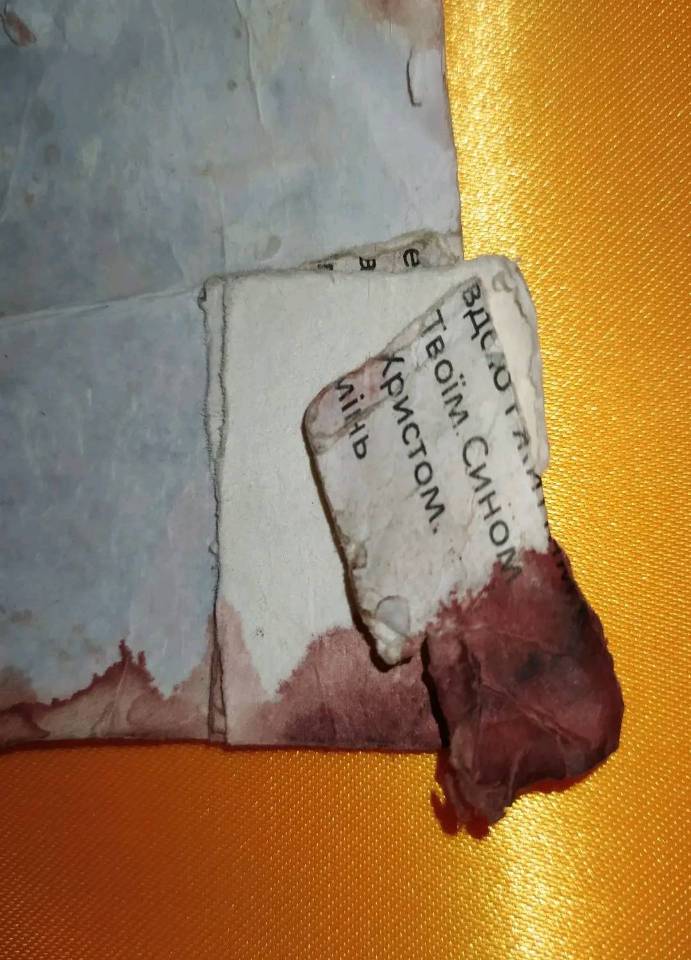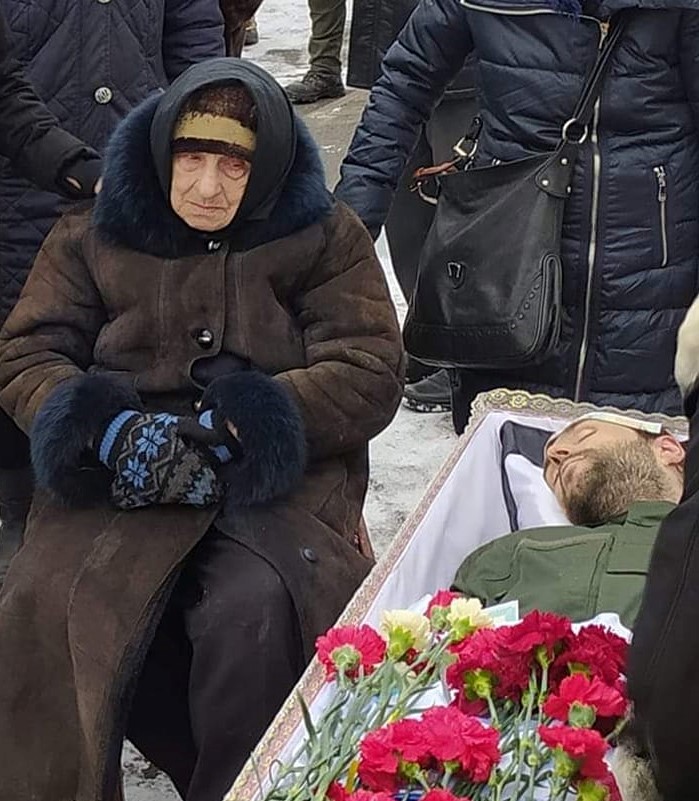war story
Kharkiv region, Kharkiv district, Mala Danylivka village - Nov 8, 2024
Her destiny a mirror of the era
Her destiny a mirror of the era
This is about
Raisa Vasylivna Golub

aiThe life of 97-year-old Raisa Vasylivna Golub (née Bahaziy) is a small mirror that reflects the path Ukraine has traveled over the past century.
aiRaisa Vasylivna was born in 1927 in the Khmelnytskyi region to a family of village teachers. In the early 1930s, Raisa lived with her grandparents while her parents worked in a neighboring village. The Bolsheviks “dekulakized” her grandparents: that is, they kicked them out of the house they built with their own hands when they were young. Her grandfather was a blacksmith, a jack of all trades, and that's how he got the construction money.
aiThese grandparents were taken in by kind people, and little Raya went back to her parents. Another grandmother, her mother's mother, came to live with them too. She and grandfather had also been evicted from their house because they were matchmakers for their already dekulakized relatives. They lived in poverty and Grandfather was forced to go find a way to earn a living.
aiThe family's misfortunes did not end there. In 1937, Raisa's father, Vasyl Bahazii, was arrested. What had he done wrong according to the Soviet authorities? He taught Ukrainian language, literature, and history to children, staged plays with them, and directed a choir. He was also a member of the Ukrainian Youth Union and worked in the village Prosvita. For all these “offenses,” a new wave of Stalinist repression swallowed him up. Vasyl was sentenced “without the right to correspond,” which meant either 25 years of hard labor or execution.
aiAfter her father, Raisa's mother was arrested as the wife of an “enemy of the people.” They put her in prison for 9 months. Then she was sent to Kazakhstan for 10 years of forced labor.
aiTen-year-old Raya and her 4-year-old sister stayed only with their grandmother.
aiIt took a long time to find out what happened to Vasyl. Finally, the answer came: “He died of kidney disease.” The daughter never found out what really happened and where her father's grave was.
aiThe grandmother and her granddaughters were evicted from their school house. They moved to their native village where a compassionate soul took them in.
aiIn the early summer of 1941, Raya's aunt, her mother's sister, invited her to visit. She lived with her family in a border village.
aiAnd then the war broke out. Raisa's uncle went to the front, and her aunt, together with her children and niece, went east. Traveling in a freight train wagon, they were shelled by enemy aircraft. That was the first time Raya learned about bombing and the terror of sudden death.
aiThe front was approaching, and the aunt and her children moved on – first to the Poltava region, then to the Voronezh region, where they waited for the end of the war.
aiWhen the enemy was finally driven out of Raisa's native place in April 1944, the family returned to their small homeland - again in a freight train, and this time in the spring - in a cold carriage, sick.
It seems that in her, in this old woman, the resilience and indomitability of her native Ukraine are reflected like a drop of water.
aiAt the end of the war, Raisa was already a young woman. After graduating from secondary school, she entered Lviv University. Like her father, she received a degree in philology and began working at a school in Ternopil. Like her father, she wrote poetry. She got married and gave birth to a son, Yurii.
aiThe young family moved to the Kharkiv region, to the village of Mala Danylivka, where her husband's relatives lived. Here, the couple also built a house for themselves. And here, their daughter Olena was born.
aiThe children have grown up. Raisa's son, Yurii, graduated from the Kharkiv Zooveterinary Institute and defended his dissertation. He moved to Kyiv and raised two daughters, Anya and Olya, with his wife. They have already given birth to great-grandchildren, who now live with their parents in Denmark.
ai
aiDaughter Olena continued the family tradition. After graduating from the philology department of Kharkiv University, she began working at a school, then for a Catholic magazine. She gave birth to three children, sons Taras and Anton, and daughter Olesia. She also wrote wonderful poetry, following in the footsteps of her mother and grandfather, and published two books.
ai
aiDaughter Olena continued the family tradition. After graduating from the philology department of Kharkiv University, she began working at a school, then for a Catholic magazine. She gave birth to three children, sons Taras and Anton, and daughter Olesia. She also wrote wonderful poetry, following in the footsteps of her mother and grandfather, and published two books.
aiIt seemed that life would not go off the happy path now. However, the next test that the country faced did impact the family.
aiWhen the Maidan, which would become known as the “Revolution of Dignity,” was taking place at the turn of 2013-2014, Raisa's eldest grandson, Taras, a PhD in biology who lives and works in Kyiv, could not stay away. Together with thousands of his compatriots, he stood on Khreshchatyk under fire from the security forces.
aiWe can only guess how worried his family was about him. But, thanks be to God, he was all right. President Yanukovych fled to Russia and his administration was overthrown.
aiSoon after, Russia invaded Ukraine, annexed Crimea, and began to seize large parts of the Donbass region.
aiAn anti-terrorist operation to liberate these Ukrainian occupied lands began. Raisa's second grandson, Anton, was mobilized for military service. Again, it was a great worry for the family. Fortunately, Anton survived the war. He returned to civilian life and continued his work as a veterinarian in his native village.
aiBut the family still suffered tragedy: in 2018, Raisa's daughter, Olena, was killed by a car. Was this the sacrifice that fate demanded for the grandchildren that were saved?
aiThen, four years after this tragedy, the whole country faced terrible times: Russia launched a full-scale war against Ukraine.
aiOn the first day of the Great War, grandson Anton was mobilized. He did not consider himself entitled to take custody of his old, sick grandmother (which she begged for!), because his father, Raisa Vasylivna's son-in-law, could take care of her, even though he was about 80 years old. Her younger granddaughter Olesia lived far away in Lviv. From the front, Anton still helped his grandmother: he found a nurse for her by phone and paid for her services from his military salary. The only thing he could not do was protect her from the bombing.
ai...A year later, Anton, her most caring grandson, perished. It is difficult to imagine the state of Raisa Vasylivna, who, after losing her daughter, also lost her grandson in this terrible war.
aiIt's hard to say how the almost century-old grandmother feels after these losses. She would like to follow her family, but life does not let her go. Apparently, the tests of her early childhood hardened her. And now, when her legs are no longer able to walk, and she is plagued by all the diseases of her age, and her heart is heavy with loss, Raisa Vasylivna still supports others: she wishes them health, joy, and happiness when communicating.
ai
aiIt seems that in her, in this old woman, the resilience and indomitability of her native Ukraine are reflected like a drop of water.
ai
aiIt seems that in her, in this old woman, the resilience and indomitability of her native Ukraine are reflected like a drop of water.
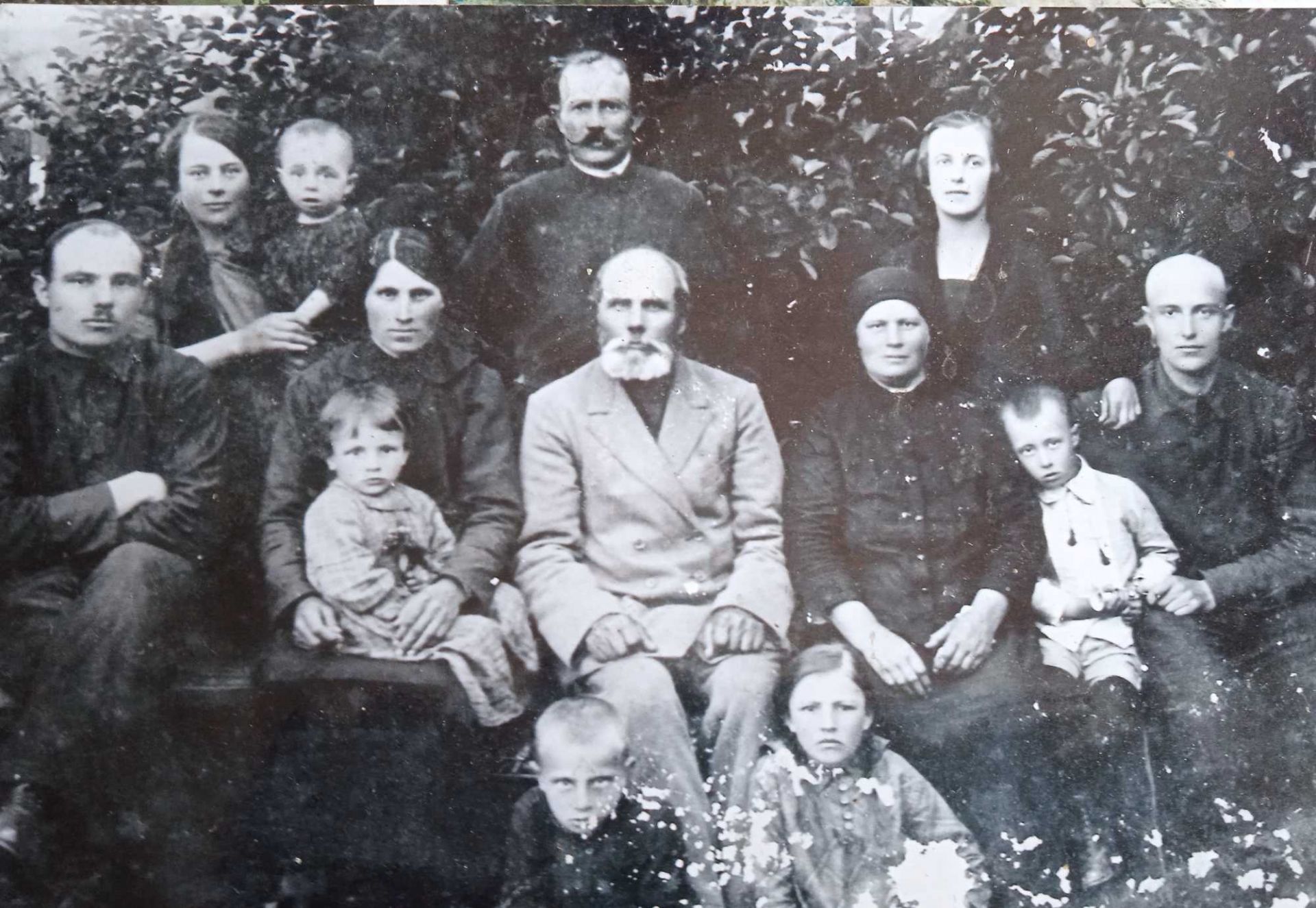
The Bahazii family. In the middle: grandparents. On the far left is Vasyl Bahazii. His wife with Rajecka are standing next to him.
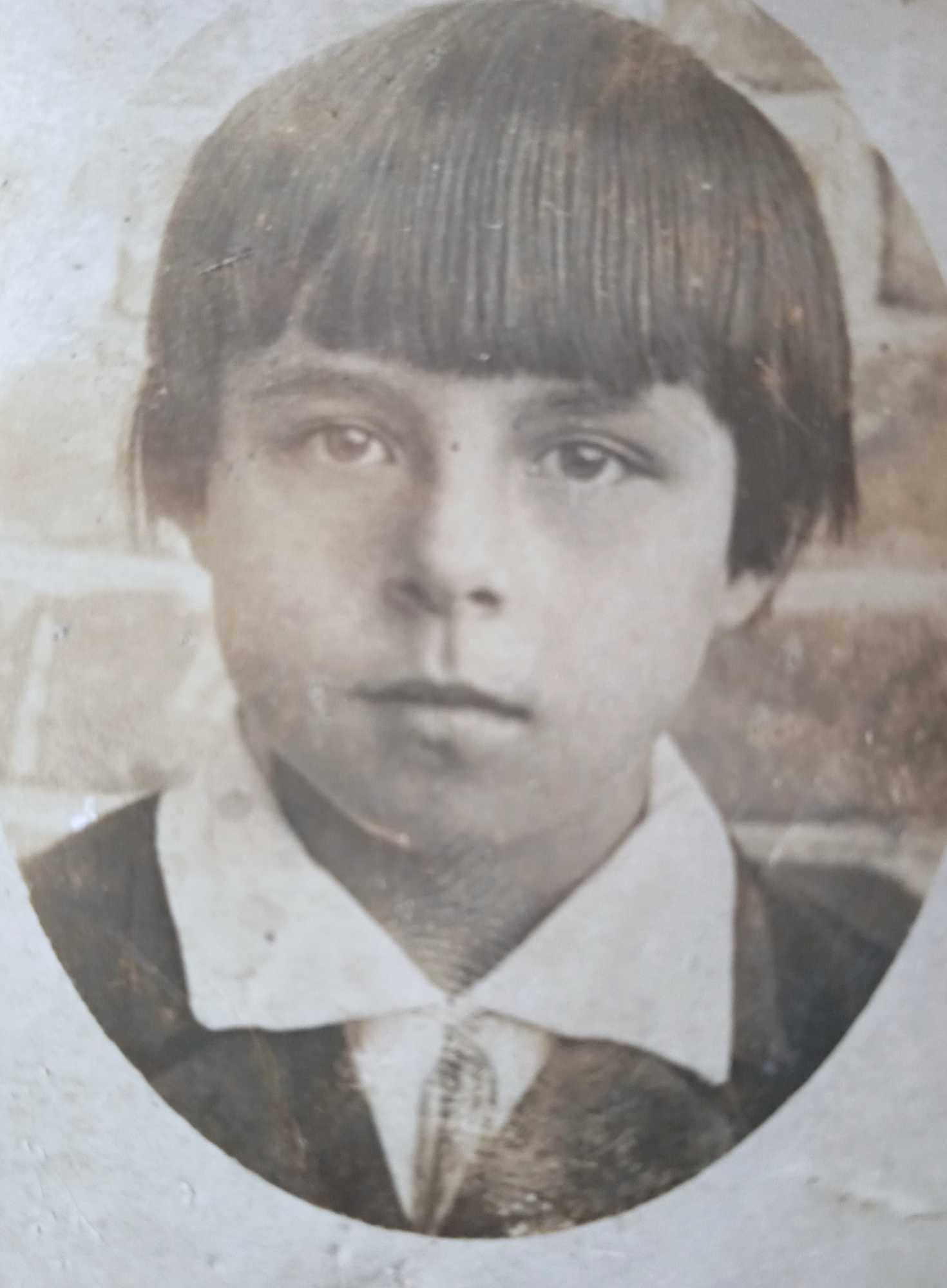
Raya, a schoolgirl.
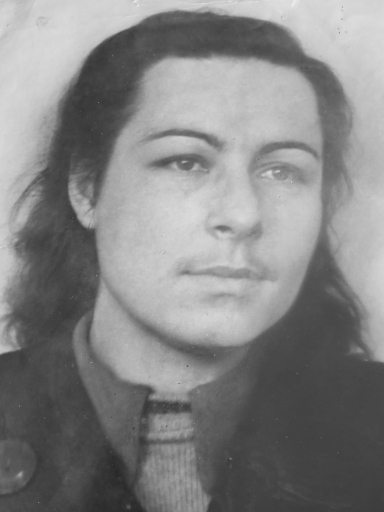
Raisa, a teacher.
Olena Holub-Pushkar died
kharkiv-nspu.org.ua View more
The flight of a dove : The high and tragic fate of Olena Holub-Pushkar (4.11.1958-5.01.2018)
ekhnuir.karazin.ua View more
Veterinarian from Kharkiv Anton Pushkar died in the front line
censor.net View more
Taras Pushkar: 40 days after the death of his brother, Ukrainian defender Anton Pushkar
censor.net View more
